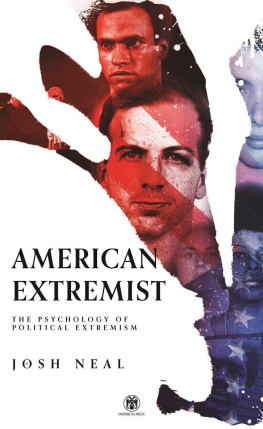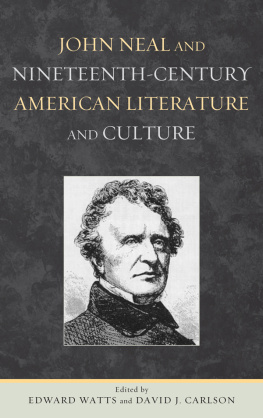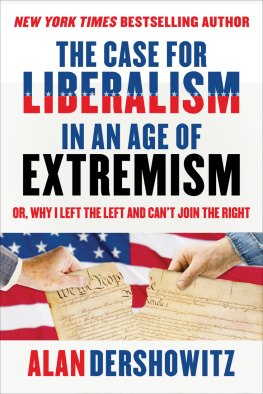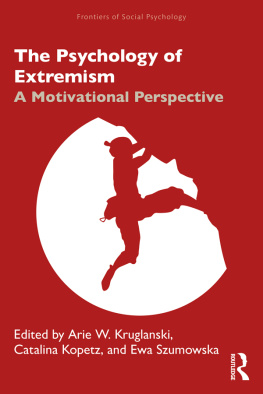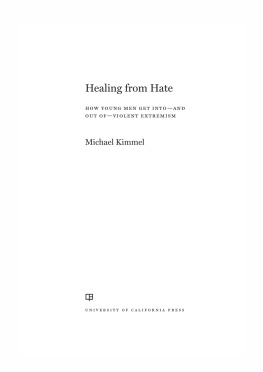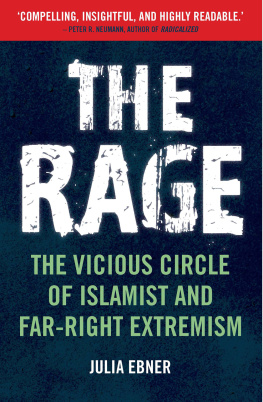Published by Imperium Press
www.imperiumpress.org
Josh Neal, 2021
The moral rights of the author have been asserted
Used under license to Imperium Press
All rights are reserved. No part of this publication may be
reproduced, stored in a retrieval system, or transmitted in any
form or by any means, electronic, mechanical, photocopying,
recording, or otherwise, without prior permission of Imperium
Press. Enquiries concerning reproduction outside the scope of
the above should be directed to Imperium Press.
First Edition

A catalogue record for this
book is available from the
National Library of Australia
ISBN 978-0-6488593-6-9 Paperback
ISBN 978-0-6488593-7-6 EPUB
ISBN 978-0-6488593-8-3 Kindle
Imperium Press has no responsibility for the persistence or
accuracy of URLs for external or third-party Internet websites
referred to in this publication and does not guarantee that
any content on such websites is, or will remain, accurate or
appropriate.
Contents
Acknowledgements
This work would not have been possible without the contribution and support of a great many people, the vast majority of whom I do not know and will sadly never have the pleasure of meeting. First and foremost among them are the guests and audience of the various programs I have hosted over these last few years. The former greatly expanded my knowledge and awareness of the world and its workings while the latter made the success of these programs possible. Second, I owe a great deal to Joel Davis for introducing me to the work of Chris Bond and ultimately to the fine people at Imperium Press . Without them, this book may never have seen the light of day. My brief tenure with the Radix team was also pivotal to the production of this work, and so I thank them as well (Jefferson, Tyler, Nils, Mark, and Richard). I feel no shame in admitting that the initial phase of this work was fraught with great difficulty and terrifying confusion, and that I might not have persevered without the careful eyes of a handful of generous people and so my thanks goes out to you as well (Caroline, Miss White). However, the most pivotal, and also paradoxical, contributionsperhaps this works raison dtrecame from the very people who were responsible for revealing my identity to the public, and thus precipitating a very difficult but necessary period in my life. I am unreservedly, and eternally, grateful to that group of dedicated miscreants (and their collaborators), for without them I would not have strove to achieve as deep an understanding of this subject as I now possess. Truly, it is a debt I will never be able to repay. Of course, I am also indebted to you, the reader. It is my hope that in reading this, you find my work as illuminating as I did writing it.

Introduction
From There to Here
Upon what force do we call to conceive a soul?
Not woman, but circumstance.
Not man, but haughty arrogance.
Many have asked, as have many answered, but truth be told
That the measure of a man can be found through
so-called happenstance.
November 18 th , 2016
With the help of my closest friend of over fifteen years, I started my career as a broadcaster and commentator the week after the 2016 presidential election. At that time, I could not have imagined where this decision would take me or how it would impact my life. I certainly did not anticipate that just three years later, my foray into the world of politics would lead to the publication of over a dozen hit pieces which would render me persona non grata. But to tell that story (and ultimately the story of this books publication) necessitates a trip down memory lane.
Only a few months prior to embarking upon this new venture, I was knee deep in doctoral applications and seeking to climb the final hurdle on my way to becoming a licensed clinical psychologist. Deeply ambivalent about this goal, I was desperately seeking other alternatives; I was not enthusiastic about the prospect of spending another four years in school at the expense of other ambitions. To make matters worse, many of the programs I was considering had faculties staffed by, shall we say, academics of a certain persuasion. Many of my would-be mentors were pursuing areas of research that hardly excited me. As for the ones that did, I couldnt shake the nagging feeling that there would be significant compatibility issues. I wanted to practice my craft, but the cost seemed too high. Cautiously, I began searching for potential off-ramps to liberate me from the highway of stagnation and conformity I saw unfolding before me. I did not want to spend half a decade in classrooms, especially if that meant walking on eggshells around my fellow classmates, and more significantly, my instructors and mentors. Further complicating the matter was the distressing fact that I still did not know where I stood, intellectually. I had spent the preceding decade floating in and out of various artistic and philosophical subculturesricher for the experience, yesbut with no surer footing beneath me to show for it. Certainly, I had developed a keen sense of what I stood against. But what I stood for ? That was a bit trickier.
In the half decade or so prior to 2016 I had been working as an adjunct and a research assistant, picking up classes at various schools in the New York area and jumping from laboratory to laboratory vainly pursuing the singular golden opportunity which would snap the pieces of my life together. These experiences were profoundly startling. Conversations with fellow adjuncts, professors, and even department chairs, while often congenial, over time took on a distinctly sinister quality. Even innocuous comments about psychology or current events would trigger intense disgust and revulsion from my peers and superiors. Being a naturally curious and open-minded person with a great many sympathies for left-wing politics, the degree of hostility to anything outside of their narrow field of permissible opinions was beyond staggering. This trend would only intensify in the months leading up to and immediately following Donald Trumps victory. As that fateful day drew nearer and nearer, it became impossible to do anything other than smile and nod during interactions with my colleagues. And while I did not find this to be a problem for my career as a researcher, the idea of applying for a position to yet another laboratory where I would inevitably find myself going through the motions proved to be rather disheartening to say the least.
Circumstances inside the classroom were hardly any better. My experiences as an adjunct involved at least as much un-teaching as it did actual productive instruction. It was shocking to see just how poorly educated, or rather, how well miseducated many of my students were. Moreover, they had grown accustomed to viewing educationnot just the discipline of psychologyas superfluous, deliberately uninteresting and irrelevant, if not something completely antagonistic. It was a task I felt unfit for, but I gave my best effort to meet the challenges presented to me. Largely I was a success, and my students appreciated these efforts even if some still found the course material unnecessary to their larger ambitions. Not that the climate permitted simple discussions of these topics prior to my tenure as an adjunct, but with time it became increasingly difficult to discuss issues related to sexuality, intelligence, ethnic and racial differences in human development, family structure, and the principles of social psychology, without confronting the political veil shrouding each subject. As the country inevitably lurched toward November 8 th , 2016, the question of Donald J. Trump also became difficult to avoid. Generally, these were multiethnic classrooms, diverse in every sense of the word, thus necessitating an approach to each lecture that demanded a grace and finesse befitting a world-class neurosurgeon. In many ways, I learned the skills of diplomacy, persuasion, and rhetoric which would prove invaluable as a commentator by virtue of having to confront some hundred or more students, often four to six days a week, in virtually every borough of New York City.

